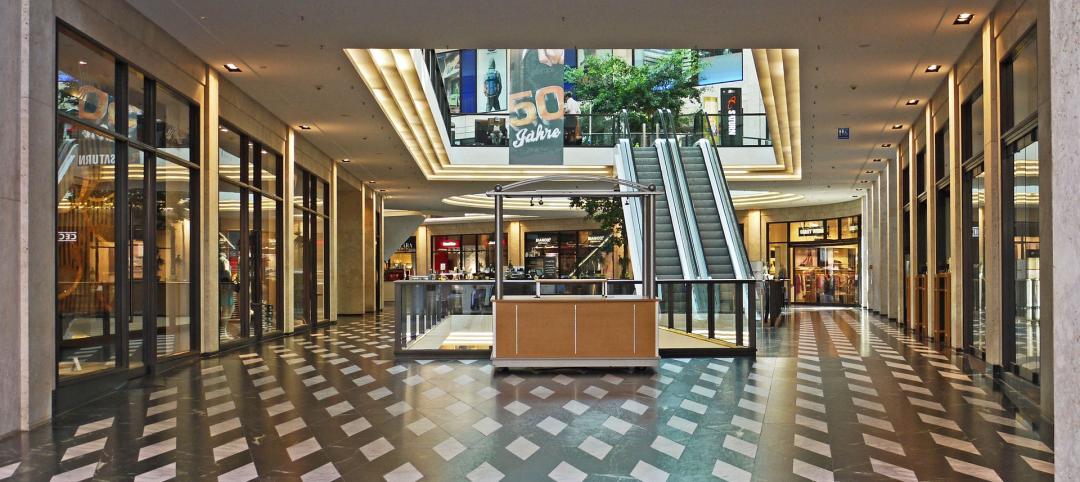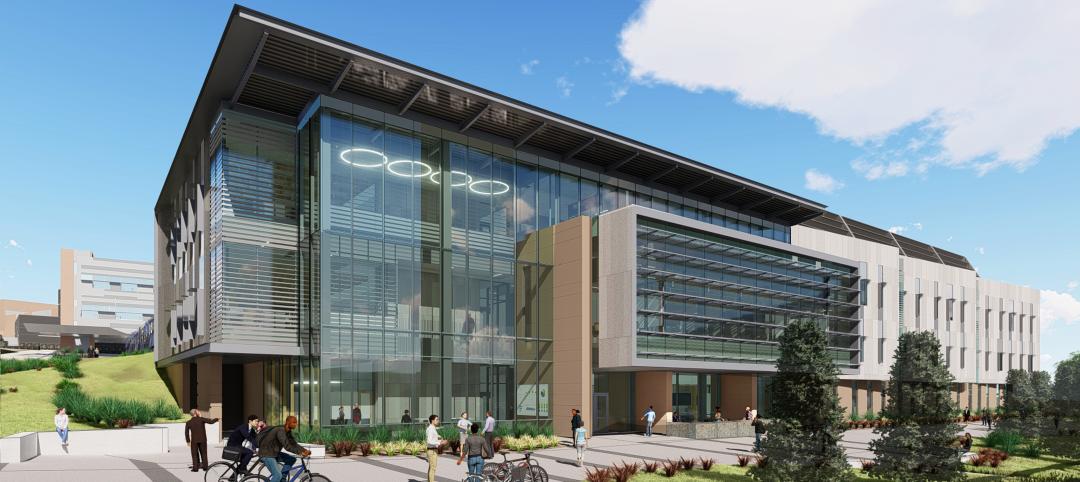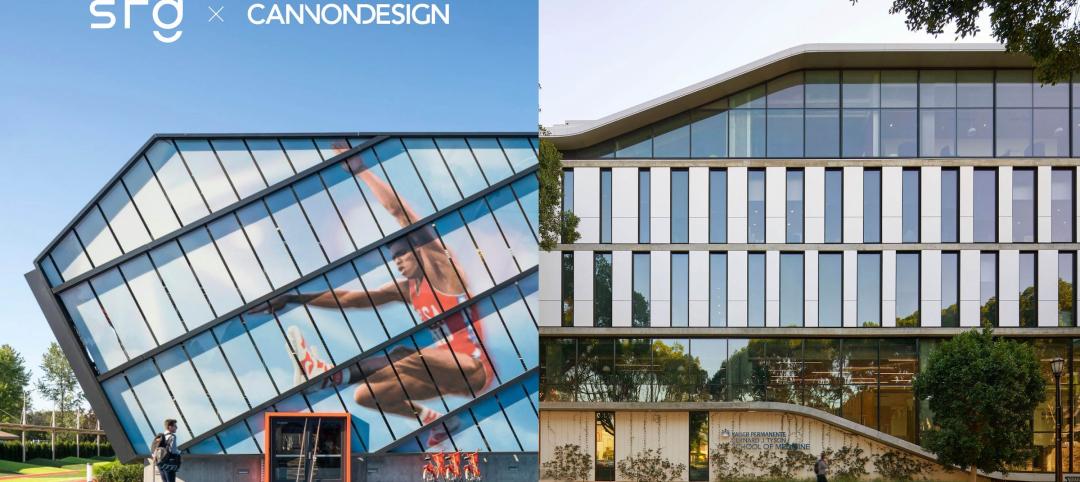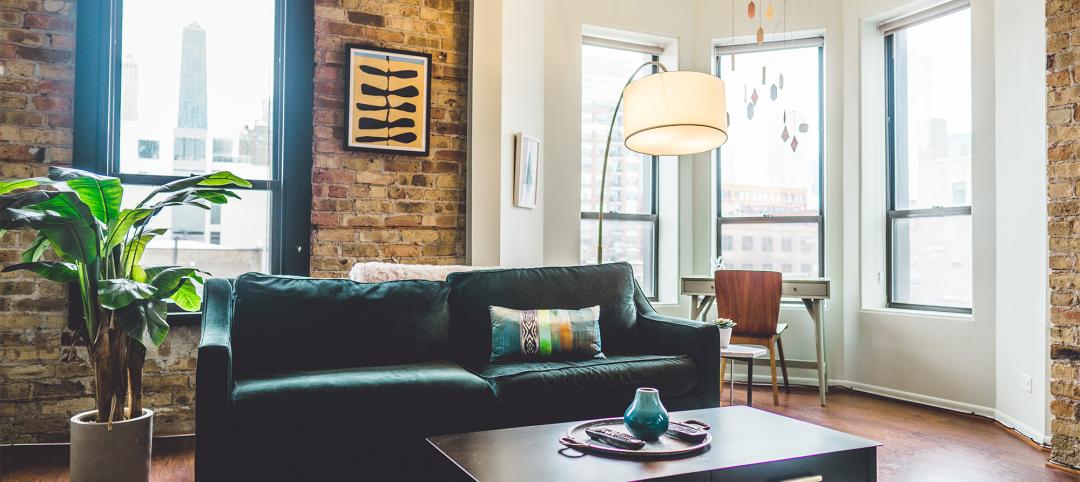In the rapidly changing world of virtual design and construction, the mechanical-electrical-plumbing component of building information modeling has earned a reputation as something of a technology laggard. BIM for structural work? Beautiful. For architectural design? Lovely. For general construction? Terrif’. But BIM for MEP? Not so hot.
That negative perception is changing, as MEP engineers find new ways to put BIM to more effective use in their work—which, in the case of a complex project like a hospital, can account for 30-40% of total construction costs.
Southland Industries, Garden Grove, Calif., is one such innovator. The design-build mechanical contractor is applying electronic surveying technology to BIM and 3D models to enhance the accuracy and reliability of prefabricated HVAC and plumbing systems. In so doing, it is saving time and money on complex hospital projects while improving quality.
Forging a unified Building Team
Three years ago, a major client commissioned Southland and its partners to design-build a complex of three facilities totaling more than a half-million square feet—a multi-story patient tower with a diagnostic/treatment center, a health services building, and a central utility plant.
The Building Team—which in addition to Southland included HMC Architects (architect), Ted Jacob Engineering Group (M/E OR and electrical COR), Sasco Electric (design-assist electrical contractor), Berger Bros. (exterior framing), Sharpe Interior Systems (interior framing), and McCarthy Building Cos. (GC)—had worked together successfully on a previous job for this healthcare provider. The client wanted to keep the same team and bring them together early in the design process, a practice that had not been followed in the earlier project.
Southland’s role was to provide design-assist mechanical/plumbing services. According to Patrick Reed, Contract Executive in the firm’s healthcare division, the company grasped the opportunity to make better use of the available BIM/3D documents to improve its prefabrication of mechanical and plumbing systems.
Southland had been prefabbing piping and sheet metal in its 80,000-sf shop in Garden Grove, Calif., for decades. For the new project, Reed and his team planned to apply electronic surveying technology normally used for exterior applications—in this case, Trimble Total Station RTS-555, with AutoCAD CADMEP+ solution software—to the BIM models of the interior HVAC and plumbing systems.
“Our Northern California office had used a system like this in previous projects,” says Reed. For the new project, the goal was to take the data from the BIM model and prefab the mechanical and plumbing systems in whole assemblies—for 100% of the job.
“You can run into problems because the documents don’t match what’s out in the field,” says Reed. The surveying system would, it was hoped, provide the accuracy needed to make sure all the prefabbed pieces fit together perfectly at the site.
Dialing down the tolerances
Linking the interior survey to the BIM model proved an enormous time saver for prefabbing and installing such components as piping insert hangers, seismic inserts, and sleeves. “We had not preassembled our hangers before,” says Reed. Instead, hangers would be delivered to the field and cut on site. “The Trimble system allowed us to set a zero point on the metal deck so that we could prefab hangers to a half-inch accuracy in height,” he says.
The system also provided a level of accuracy of plus or minus one-eighth of an inch, versus a quarter-inch industry standard. “We had a reproducibility that allowed us to use 98-99% of the inserts and prefabricated hangers, compared to about 85% in previous jobs,” says Reed. “Three-D coordination allowed that level of reproducibility.”
Plumbing and pipefitting installation was vastly improved. Instead of having crews of five or six using string and tape to measure and lay out mechanical system inserts, Southland was able to use two-person crews to do the same job more accurately, using the electronic survey equipment. “It took about two weeks of training to learn how to use the device and the methodology,” recalls Reed. “After becoming proficient with the device, their productivity excelled.”
That training paid off in a 50% time savings for making these measurements. “A building on the scale we were working on would have 10,000 to 15,000 data points,” says Reed. “We were hitting 800 or 900 points per deck per day. We could lay out a 25,000-sf floor plate in three or four days with a two-man crew. That would take a typical crew of six a week to perform the same task.” Even more important, says Reed, “Our accuracy was 99% in the field.”
The Southland team took that expertise and applied it to mechanical system penetrations through framed walls. “In the past, we’d use tape and string,” says Reed. “With Trimble, we’d go out with the model and make the measurements. Trimble was much more accurate, and this cut down problems with the drywall framer,” Sharpe Interior Systems.
Improving logistical flow on the job
Combining the interior survey with the BIM model produced other benefits as well. “To us, prefab is more than just cutting pipe to length and welding it in the shop, or assembling ductwork in the shop,” says Reed. “Now, it’s taking the information from the BIM model so that we have right-size batching of whole sections—preassembled, presoldered, prebraced—to ship to the site.” Reed says his team learned a lot about logistics, just-in-time workflow, and right-size batching—packaging, documenting, and numbering all the parts and pieces in the floor plan.
And because Southland was able to get its work done more quickly, the contractor could move along faster, too. “McCarthy could pour a deck every three or four days,” says Reed.
However, Reed acknowledges that melding the electronic survey data into the BIM model did not always work perfectly. “In some cases we had limitations when the files were too large,” he says. He cautions that electronic surveying for interior measurements works best for large-scale projects with repetitive floor plans—a high-rise hotel, for example.
Reed’s team also found that its original system for numbering and ordering hangers didn’t work in the field and had to be changed midstream. Shipping preassembled trapeze hangers with the rods already installed also proved overly cumbersome. Instead, they taped the struts and other pieces to the rods and had crews put them together in the field. “That solution sounds counterintuitive, but it was 15% faster to do it that way,” says Reed.
But there’s no thought of going back to the old stick-and-tape ways of measuring interiors. Southland has adopted a standard of prefabricating 100% of all hangers for major new construction work. “The Trimble system’s accuracy eliminates a lot of human error,” says Reed. “It’s enabling us to take our prefab capability to the next level, to plan further in advance without having to do rework in the field.”
Related Stories
Giants 400 | Feb 5, 2024
Top 30 Entertainment Center, Cineplex, and Theme Park Architecture Firms for 2023
Gensler, JLL, Nelson Worldwide, AO, and Stantec top BD+C's ranking of the nation's largest entertainment center, cineplex, and theme park architecture and architecture engineering (AE) firms for 2023, as reported in the 2023 Giants 400 Report.
Urban Planning | Feb 5, 2024
Lessons learned from 70 years of building cities
As Sasaki looks back on 70 years of practice, we’re also looking to the future of cities. While we can’t predict what will be, we do know the needs of cities are as diverse as their scale, climate, economy, governance, and culture.
Giants 400 | Feb 5, 2024
Top 90 Shopping Mall, Big Box Store, and Strip Center Architecture Firms for 2023
Gensler, Arcadis North America, Core States Group, WD Partners, and MBH Architects top BD+C's ranking of the nation's largest shopping mall, big box store, and strip center architecture and architecture engineering (AE) firms for 2023, as reported in the 2023 Giants 400 Report.
Laboratories | Feb 5, 2024
DOE selects design-build team for laboratory focused on clean energy innovation
JE Dunn Construction and SmithGroup will construct the 127,000-sf Energy Materials and Processing at Scale (EMAPS) clean energy laboratory in Colorado to create a direct path from lab-scale innovations to pilot-scale production.
Architects | Feb 2, 2024
SRG Partnership joins CannonDesign to form 1,300-person design giant across 18 offices
SRG Partnership, a dynamic architecture, interiors and planning firm with studios in Portland, Oregon, and Seattle, Washington, has joined CannonDesign. This merger represents not only a fusion of businesses but a powerhouse union of two firms committed to making a profound difference through design.
Giants 400 | Feb 1, 2024
Top 90 Restaurant Architecture Firms for 2023
Chipman Design Architecture, WD Partners, Greenberg Farrow, GPD Group, and Core States Group top BD+C's ranking of the nation's largest restaurant architecture and architecture engineering (AE) firms for 2023, as reported in the 2023 Giants 400 Report.
Standards | Feb 1, 2024
Prioritizing water quality with the WELL Building Standard
In this edition of Building WELLness, DC WELL Accredited Professionals Hannah Arthur and Alex Kircher highlight an important item of the WELL Building Standard: water.
Luxury Residential | Feb 1, 2024
Luxury 16-story condominium building opens in Chicago
The Chicago office of architecture firm Lamar Johnson Collaborative (LJC) yesterday announced the completion of Embry, a 58-unit luxury condominium building at 21 N. May St. in Chicago’s West Loop.
Industry Research | Jan 31, 2024
ASID identifies 11 design trends coming in 2024
The Trends Outlook Report by the American Society of Interior Designers (ASID) is the first of a three-part outlook series on interior design. This design trends report demonstrates the importance of connection and authenticity.
Museums | Jan 30, 2024
Meier Partners' South Korean museum seeks to create a harmonious relationship between art and nature
For the design of the newly completed Sorol Art Museum in Gangneung, South Korea, Meier Partners drew from Korean Confucianism to achieve a simplicity of form, material, and composition and a harmonious relationship with nature. The museum is scheduled to open on February 14. It is the firm’s first completed project since restructuring as Meier Partners.

















